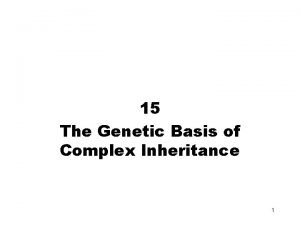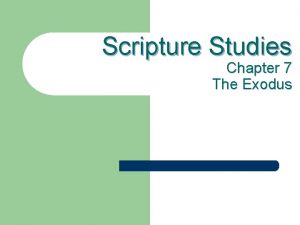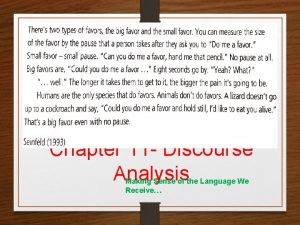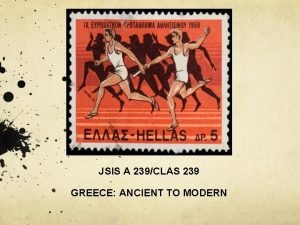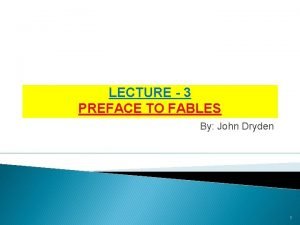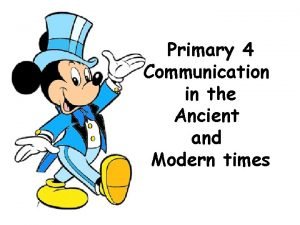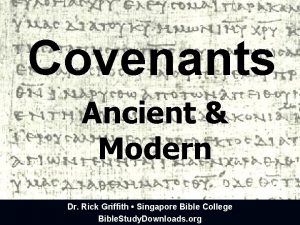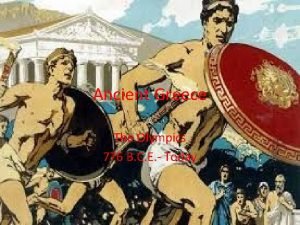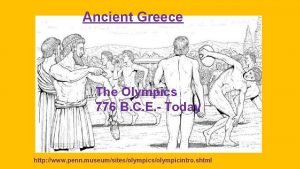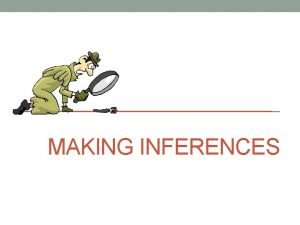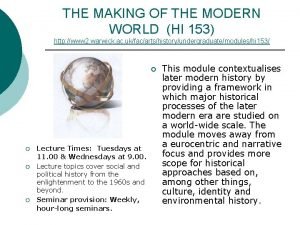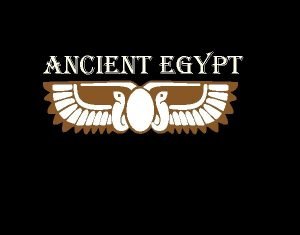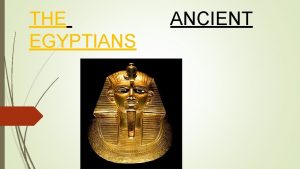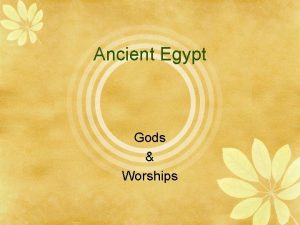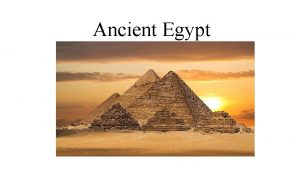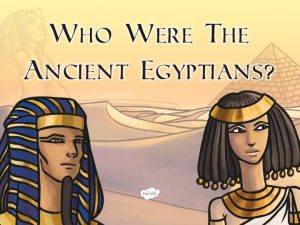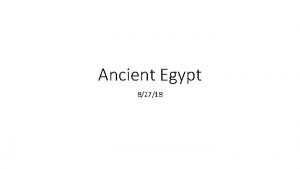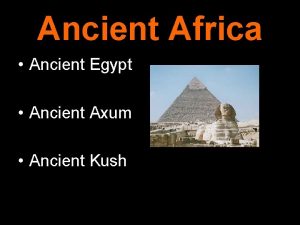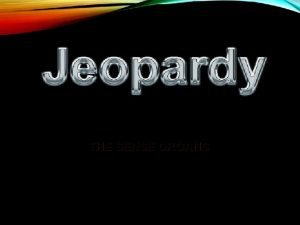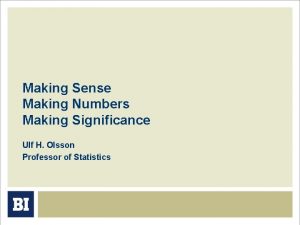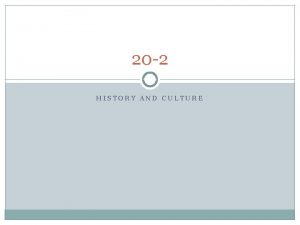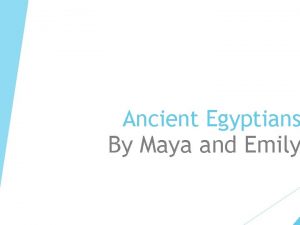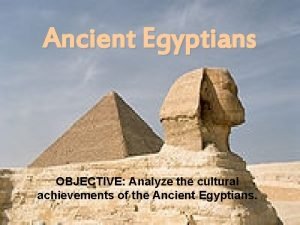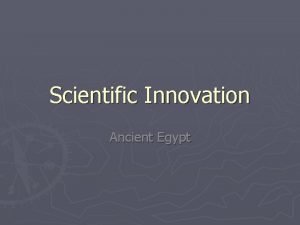Ancient and Modern Making Sense of the Egyptians








![[Chronology activity] 7500 BC 0 AD [Chronology activity] 7500 BC 0 AD](https://slidetodoc.com/presentation_image/d0ac125d0051fa6e4dc64f3e17a27793/image-9.jpg)
















- Slides: 25

Ancient and Modern Making Sense of the Egyptians ﺻﺮ

History and Geography To go cross-curricular or not to go? That is the question Ofsted advice: • When topics are carefully constructed and delivered they can work really well. • However, too often, individual subjects, their skills and concepts and assessment, get 'lost' in the mix. Where to start? History? Geography? Or keep switching?

“The history of good farming land is the history of the world. ” - Cameron Taylor “The Macbeth Trail”, BBC Radio 4 Open Country 14 th November 2015.

Settlement Locational knowledge Can we put a name to it? Why is it there?

Settlement Where are most of the people? Why are they there? How does that fit with the other images we have seen?

The Thread of the Nile … … flows through the country “Egypt is the gift of the Nile” “The Nile unifies Egypt” Can we trace it from source to sea? What are its main features? (How are they like or unlike other rivers we know? ) How does it get to be so big? Where does it pass through? What happens if those places disagree about its use?

Everyday life in Egypt Boushra’s Day: From Dawn to Dusk in an Egyptian City The Day of Ahmed’s Secret – Heide / Gilliland Egypt in the news: • http: //weekly. ahram. org. eg/ • www. aljazeera. com/ • www. dailynewsegypt. com Looking at images, tourism, trade, biomes, culture, faith … and history

Ancient Egypt. . . .
![Chronology activity 7500 BC 0 AD [Chronology activity] 7500 BC 0 AD](https://slidetodoc.com/presentation_image/d0ac125d0051fa6e4dc64f3e17a27793/image-9.jpg)
[Chronology activity] 7500 BC 0 AD

Stonehenge? 7500 BC 0 AD Iron Age? Invasion of Julius Caesar? Cheddar Man?

Stonehenge? Iron Age? Invasion of Julius Caesar? Cheddar Man? 7500 BC 0 AD Tutankhamun Hatshepsut Cleopatra Howard Carter Alexander the Great Akenhaten Herodotus visits Egypt 1 st pyramid built last pyramid built Ramesses II Rosetta Stone discovered Valley of the Kings used for burials

Stonehenge? Iron Age? Invasion of Julius Caesar? Tutankhamun 1336 BC Hatshepsut 1473 BC Cleopatra 51 BC Howard Carter 1923 Alexander the Great 332 BC Akenhaten 1385 BC Herodotus visits Egypt c 460 BC 1 st pyramid built 2650 BC last pyramid built 2150 BC Ramesses II 1279 BC Rosetta Stone discovered 1799 AD Valley of the Kings for burials 1504 BC to 1070 BC Cheddar Man?

Focus? • Pyramids or Valley of the Kings • rich or poor • gods or rulers • agriculture or trade • Tutankhamun or Howard Carter • Ancient World or Greek/Roman world


How do we know?


Pyramids.

The gods. . .

Hatshepsut A significant individual?

Hatshepsut 1. Female pharaoh 2. Trade to Punt 3. Tomb discovered in 2007 4. After her death, her son had removed all mention of her

Hatshepsut 1473 BC – trading game Gold Silver Papyrus linen Grain Glass Horses perfume Cedar Ivory Leopard skins Ostrich feathers Frankincense Myrhh Cinnamon Baboons Monkeys Lapis Lazuli

1332 -1323 BC

Alexander the Great


 Rich egyptian clothing
Rich egyptian clothing Dominant genetic variance
Dominant genetic variance Narrow sense heritability vs broad sense heritability
Narrow sense heritability vs broad sense heritability The egyptians were the first
The egyptians were the first Which egyptian ruler avoided military conquests
Which egyptian ruler avoided military conquests Who were the egyptians
Who were the egyptians Middle ages floral arrangements
Middle ages floral arrangements What incident caused moses to rebel against the egyptians
What incident caused moses to rebel against the egyptians Renaissance period floral design
Renaissance period floral design Making sense of discourse
Making sense of discourse Modern names
Modern names Preface to the fables by john dryden summary
Preface to the fables by john dryden summary Communication in ancient time
Communication in ancient time Classical biotechnology
Classical biotechnology War making and state making as organized crime
War making and state making as organized crime Ancient india vs ancient china
Ancient india vs ancient china Romeo + juliet prologue
Romeo + juliet prologue Ancient modern bible
Ancient modern bible Ancient olympics vs modern olympics
Ancient olympics vs modern olympics 776 bce
776 bce 776 bce
776 bce What is inference
What is inference Making of the modern world warwick
Making of the modern world warwick Hát kết hợp bộ gõ cơ thể
Hát kết hợp bộ gõ cơ thể Ng-html
Ng-html Bổ thể
Bổ thể


